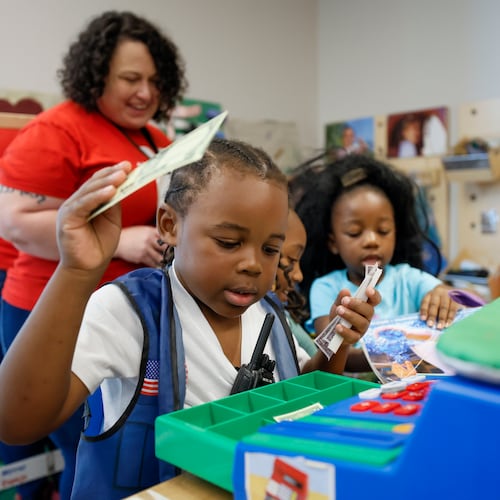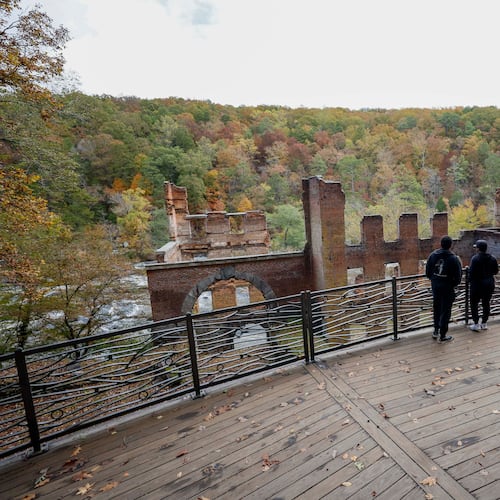When my mother was a teenager growing up in Denver, she knew from her parents that educating their children was their highest priority. Going to school could make a person better, they knew, and their lives better, too.
Even though many men of the era considered it to be a waste of money to send a girl to college (they should be getting married and having children after all), both of her parents encouraged her to apply to a local college. They also helped her pay for it, along with her jobs as a secretary and ice cream scooper.
Years later, she also earned a master’s degree and Ph.D. in education and paid for both of those with a combination of grants and jobs, too.
While all of this was going on, she married my father, an Air Force Academy cadet. Thanks to her college degree, she was always able to work as a high school English teacher wherever they were stationed at various Air Force bases around the country.
Her entire career focused on helping other students get to college or graduate school, no matter their circumstances. With jobs at the University of Georgia, Georgia Tech, Morehouse School of Medicine and plenty of others, she worked for decades to raise money to make colleges and graduate schools in Georgia better, stronger and more accessible.
This is all to explain why, when leaders in Gwinnett County approached my father to run for the county school board 30 years ago, he told them confidently, “I’m not the one you want.” He suggested they ask my mother to run instead.
That began 28 years of the lowest paying, highest stress, most beloved job of her life. For the uninitiated, serving on a local school board starts by getting elected and then, almost immediately, getting in your car to crisscross the county for four years. There are the monthly board meetings, of course, which can last up to eight hours, and visits to lawmakers in Atlanta and in Washington to make the case to fully fund the public schools. There are budget meetings and site visits, planning sessions and trainings.
For my mother, mornings often included going to schools to see principals, teachers and students. Evenings might be filled by sitting in on a high school band practice or cheering on a middle school basketball team. And then there were the late night phone calls from parents. I can’t count the number of times I heard my mother ask whoever was on the end of the line, “How can I help?”
For all of this, she and the other school board members were paid $9,000 per year, with their salaries later tied to the Legislature’s pay. It wasn’t a lot for the time it took, but that was OK, because my mom always had a full-time job. And because it was never about the money.
I’m sharing all of this at this tumultuous moment in politics, because my mother is just one of the hundreds of thousands — maybe millions — of public servants and elected officials in this country who have made it what it is. They are mayors, social workers, teachers, lawmakers, service members and librarians. Even the members of Congress I’ve disagreed with on one issue — or lots of issues — are usually there because they’re trying to make their communities a better place.
So, of all of the terrible trends in modern politics, the demonization of public servants is the one that is most appalling to me. And the effort now to blame nearly all of the country’s problems on the people who work for it is both dishonest and cynical.
There are exceptions to every rule, of course, as well as many, many ways to streamline the government that it is past time to pursue. But we may realize too late that the government employees being fired or locked out of their offices now are the same ones who keep our streets safe, our communities healthy, our markets stable and our democracy peaceful and enduring. Some of the most essential features of American life are only made possible by the public servants among us.
My mother retired from the board in January, and last Friday night, my mother was named “The Citizen of the Year” in Gwinnett County. In the time she was on the school board, working with so many others who supported the school system, Gwinnett County Public Schools grew from about 86,000 students in 1996 to 183,000 last year. To accommodate the growth, the county built 76 new schools, debt free. They’ve been named the best school system in the country twice.
Most importantly, children from any and all circumstances, countries and backgrounds have been able to enroll in top-quality public schools and go on to become doctors and entrepreneurs, Heisman Trophy winners and even teachers who returned to work in the schools where they grew up.
That Citizen of the Year trophy is now displayed at my parents’ house, along with dozens and dozens of family photos from milestones and moments across my parents’ 65 years of marriage. One of my favorites is the photo of my mother on the day she earned her Ph.D. from Georgia State University.
Wearing her cap and gown, she stood next to her parents, who had flown all the way from Denver to watch their daughter become “Dr. Mary Kay Murphy.” You’ve never seen two people so proud.
About the Author
Keep Reading
The Latest
Featured





